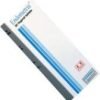No products in the cart.
Return To ShopNo products in the cart.
Return To Shop$2,748.00
Erleada (apalutamide) is an androgen receptor inhibitor that treats metastatic hormone-sensitive prostate cancer (mHSPC) and non-metastatic castration-resistant prostate cancer (nmCRPC). This oral medication blocks male hormones like testosterone that fuel prostate cancer growth, helping slow disease progression and delay cancer spread. For patients seeking order prescription medication online options, working with healthcare providers ensures proper cardiovascular monitoring before starting, ongoing assessment for falls and fractures, and access to legitimate cancer medications through trusted online medicine order services.
Unlike older hormone therapies, Erleada is a next-generation androgen receptor inhibitor that works differently from traditional androgen deprivation therapy (ADT). It’s taken orally as a 60mg tablet once daily, with or without food, making it convenient compared to injectable hormone treatments. The medication is typically used alongside ADT (hormone therapy that lowers testosterone) for mHSPC, or as monotherapy for nmCRPC in men who’ve had surgical or medical castration.
How Erleada Blocks Cancer Growth: Prostate cancer cells need androgens (male hormones) to grow and multiply. Even when testosterone levels are lowered through ADT or surgery, prostate cancer can sometimes find ways to keep growing by becoming more sensitive to remaining androgens or making its own hormones. Erleada works by directly blocking androgen receptors on cancer cells, preventing any androgens from attaching and signaling the cells to grow. This dual approach—lowering testosterone through ADT while blocking receptors with Erleada—creates a more complete hormone blockade that’s harder for cancer to overcome.
The medication prevents androgens from entering cancer cell nuclei, stops them from binding to DNA, and blocks the recruitment of proteins needed for cancer cell multiplication. Clinical trials showed Erleada significantly improved metastasis-free survival in nmCRPC patients and overall survival in mHSPC patients when combined with ADT, most patients starting treatment saw benefits within the first few months that were maintained long-term.
FDA-Approved Indications: Erleada treats metastatic hormone-sensitive prostate cancer (mHSPC) in combination with ADT for men whose cancer has spread but still responds to hormone therapy, and non-metastatic castration-resistant prostate cancer (nmCRPC) for men whose cancer hasn’t spread on imaging but continues growing despite castrate testosterone levels (below 50 ng/dL). For nmCRPC, the medication helps delay the time until cancer spreads to other parts of the body or bones.
Erleada is only for adult men and should never be used by women, especially those who are pregnant or may become pregnant, as it can cause miscarriage and severe birth defects. Men with female partners of childbearing age must use effective contraception during treatment and for 3 months after the last dose. The medication may also impair male fertility, men should not donate sperm during treatment or for 3 months afterward.
Treatment Monitoring: Before starting Erleada, your doctor will assess your cardiovascular health since the medication can increase risks of heart problems and stroke. You’ll need regular monitoring for blood pressure, cholesterol, blood sugar, and thyroid function throughout treatment. Blood tests track your PSA (prostate-specific antigen) levels to measure how well the cancer responds to treatment. For patients managing multiple conditions requiring medications from heart health medications categories, Erleada can often be continued with careful monitoring, though dose adjustments may be needed since it interacts with many common drugs including statins, blood thinners, and blood pressure medications.
Your doctor will also assess fall and fracture risks, particularly if you’re older or have bone problems like osteoporosis. Erleada can weaken bones and muscles, increasing both fall and fracture risks during treatment. Some doctors recommend calcium and vitamin D supplementation or bone-strengthening medications. The treatment requires ongoing coordination with your oncologist and other specialists, similar to patients using Casodex or other hormone therapies for prostate cancer.
If you experience seizures during treatment, Erleada must be stopped permanently. You should avoid activities where sudden loss of consciousness could cause serious harm to yourself or others, like driving or operating heavy machinery, until your doctor confirms seizure risk is managed. Most patients tolerate the medication well enough to continue treatment long-term, with side effects often improving after the first few months as your body adjusts.
| Brand | Erleada Brand |
|---|---|
| Form | 60mg 120 Tablets |
Common side effects include fatigue, joint pain, skin rash, decreased appetite, hot flashes, high blood pressure, diarrhea, and weight loss. Falls and fractures occur more frequently in patients taking Erleada due to muscle weakness and bone density changes. Rash typically appears within the first few months and may require dose reduction or temporary treatment interruption if severe. Most side effects are manageable with supportive care and often improve after the initial treatment period.
Serious side effects requiring immediate medical attention include cardiovascular events (chest pain or discomfort at rest or with activity, shortness of breath), stroke symptoms (sudden numbness or weakness especially on one side of the body, trouble speaking or understanding, vision problems in one or both eyes, dizziness or loss of balance, severe headache), and seizures (loss of consciousness, convulsions). Heart-related problems including heart attacks, strokes, irregular heartbeats, and blockages in arteries have occurred in patients taking Erleada and can be fatal.
Other important side effects include hypothyroidism (low thyroid function requiring monitoring and potential thyroid hormone replacement), elevated cholesterol and blood sugar levels, high triglycerides, low white blood cell counts increasing infection risk, and anemia. Lab abnormalities are common and require regular blood test monitoring. Report concerning symptoms to your doctor immediately, especially if you have underlying conditions similar to those requiring medications from men's health categories where cardiovascular health is already a consideration.
Erleada is FDA-approved for metastatic hormone-sensitive prostate cancer (mHSPC) in combination with androgen deprivation therapy (ADT) for adult men whose cancer has spread to other parts of the body but still responds to hormone therapy, and for non-metastatic castration-resistant prostate cancer (nmCRPC) in adult men whose cancer has not spread (based on imaging studies) but continues to grow despite castrate testosterone levels from ADT or surgical castration.
The standard dose is 60mg (four 15mg tablets or one 60mg tablet) taken orally once daily at the same time each day. Tablets should be swallowed whole and can be taken with or without food. During Erleada treatment, you must continue taking a GnRH analog (gonadotropin-releasing hormone) medication unless you've had surgical removal of the testicles. Your doctor may adjust the dose or temporarily stop treatment if you develop serious side effects like severe rash, cardiovascular events, or other concerning symptoms.
Erleada works by inhibiting androgen receptors, preventing testosterone and other male hormones from stimulating prostate cancer cell growth. Clinical trials showed it significantly delayed cancer spread in nmCRPC patients and improved survival in mHSPC patients when combined with ADT. The medication is only for men and must never be handled by women who are pregnant or may become pregnant, as even touching broken tablets can cause harm to an unborn baby. Men must use condoms and effective contraception with female partners during treatment and for 3 months after stopping. When ordering through online medicine shopping services or traditional pharmacies, ensure proper handling and storage at room temperature (not above 25°C/77°F) in the original container with the desiccant packet to protect from moisture and light.
Most patients continue Erleada long-term as long as it's controlling cancer and side effects are manageable. Your doctor monitors PSA levels and scans to assess response. Treatment typically continues until cancer progresses, unacceptable side effects develop, or you and your doctor decide to stop. Some patients take it for years successfully.
Erleada interacts with many medications including blood thinners like warfarin, statins for cholesterol, diabetes medications, seizure medications, and heart rhythm drugs. Always tell your doctor and pharmacist about all medications, supplements, and herbal products you take. Dose adjustments may be needed for either Erleada or your other medications to prevent interactions.
Take the missed dose as soon as you remember on the same day. The next day, return to your normal schedule. Never take extra tablets to make up for a forgotten dose. If you're unsure, contact your doctor or pharmacist for guidance. Setting daily reminders can help maintain consistency.
Hair loss is not a common side effect of Erleada, unlike some chemotherapy drugs. However, you may experience hair thinning. The hormone suppression from ADT used alongside Erleada may cause some changes in hair growth patterns. If you notice significant hair loss, discuss it with your doctor.
Yes, through legitimate specialty pharmacies experienced with oncology medications. Ensure the electronic pharmacy is licensed and requires a valid prescription. Erleada is expensive (often several thousand dollars monthly), so explore manufacturer patient assistance programs and insurance coverage options. Similar to patients ordering Lynparza or other cancer medications, working with specialty pharmacies helps navigate insurance authorization and financial assistance programs while ensuring medication authenticity.
The content on this page has been supplied to onlinepharmacynow.com by an independent third party contracted to provide information for our website. onlinepharmacynow.com relies on these third parties to create and maintain this information and cannot guarantee the accuracy or reliability of the information that has been provided to us.
The drug information provided here is only a summary and does not contain all the list of possible side effects and drug interactions regarding this medication. Be sure to contact your doctor or pharmacist if you have any specific question or concern. If you require any advice or information about the drugs on this page, a medical condition or treatment advice, you should always speak to a healthcare professional.
Please note that not all products, including any referenced in this page, are shipped by our affiliated Europe Pharmacy. We are affiliated with other dispensaries that ship product to our customers from the following jurisdictions: Canada, New Zealand, Turkey and United Kingdom. The items in your order maybe shipped from any of the above jurisdictions. The products are sourced from various countries as well as those listed above. Rest assured, we only affiliate with our authorized dispensaries that procure product through reliable sources.
Required
Send Your Prescription
Secure Payment
No Hidden Fees
Fast Shipping
Typically Under 7 days
From: $35.00


From: $95.00

 Ask an expert
Ask an expert
